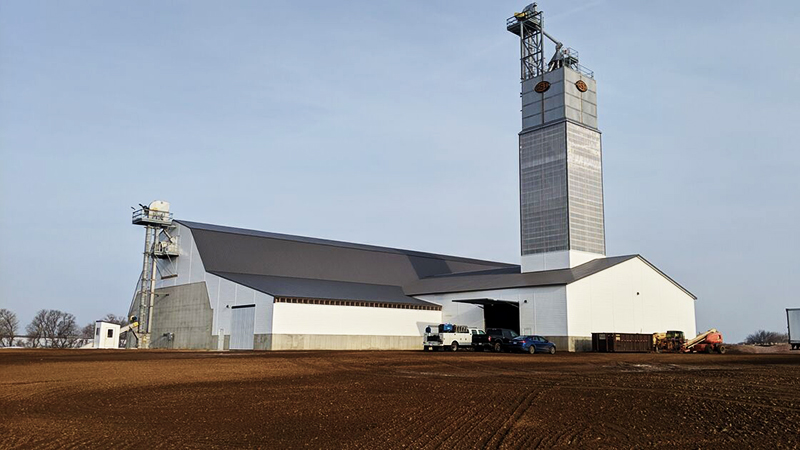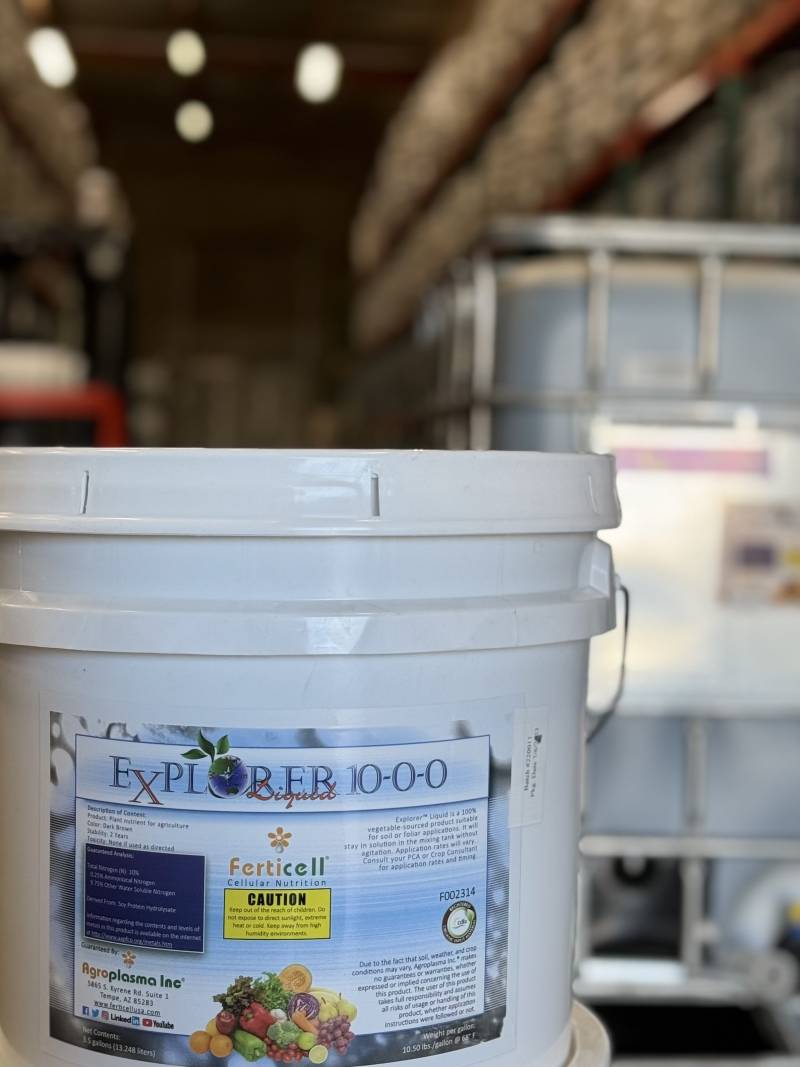Ferticell: Employing Ag Retail for Help Reaching Growers
For 20 years now, a company called Ferticell has been offering its crop nutrition products to the agriculture market. Now, however, it is engaged in the next steps to achieve greater market penetration. And the ag retail sector will play a key role in this effort.
“This year will mark our 20th anniversary,” says Bruce Roberts, Vice President, Operating Executive. “The 20th year will be one of big change. [We will have] more new and improved products, this new approach to agronomy, and partnerships, which will bring more science to how we analyze and utilize our products, as well as how we and our dealers will interact with users of our products for higher efficiency.”
To better appreciate what Ferticell is bringing to the industry, a look back at the Tempe, AZ-based company’s beginning is in order. According to Roberts, the company was started with a simple goal in mind — better crop nutrient efficiency for crops, sustainably.
“Because of previous practices, our soil biome is in most instances unable to do its job of converting inputs into usable forms by the plant,” he says. “This leads to a continuous build-up of unusable fertilizer having not been converted to a plant usable form. Use of biologics is a start, but the same issues that lead to the build-up — high salt — gradually leads to their decline.”
People Power
To address this issue, Ferticell saw a parallel between crops and people. “What we learned in human nutrition is that the biome needs its own nutrient source, prebiotics, to help the biologic, probiotic, to flourish and remain viable in the soil,” says Roberts.
With this as an inspiration, Ferticell developed a five-year plan called Prescription Fertilization to gradually wean the plant and soil of the addictive salt and then gradually begin to build the biome to a point where it can convert the unused fertilizer to what it was intended for. Additionally, because the company’s products can be used in tank loads, they can provide continuous feeding that plants were meant to utilize.
“Using the human example, your doctor might prescribe the eating of small numerous feedings for a constant flow of energy rather than the build-up of energy in the form of fat,” says Roberts. “Essentially unused fertilizer is the fat of the plant — something they could not use at that time.”
According to Roberts, Ferticell fertilizers are sustainable, produced with organic plant-based material and are certified as organic. “Being plant based also makes them highly bioavailable, so they are immediately usable by the plant without the need of conversion,” he says. “With this high bioavailability and use of unicellular freshwater algae as its carrier, we have developed one of, if not the first, prebiotic fertilizers. That algae carrier transports the fertilizer to the plant, including foliar applications, where the osmotic pressure differential between the plant cell and the algae allows the fertilizer to enter the plant almost immediately. The empty algae cell then is available as food for the biome, a prebiotic.”
Courting the Retailer
When Ferticell first started offering its products to agriculture, the company initially sold directly to growers. However, according to Roberts, this approach didn’t exactly pan out as planned. Eventually, the company switched to working with a sales group and dealers instead.
“We were focused on organic farming and began to collaborate with companies that had a presence in those markets and continued that approach for several years,” he says. “When sales increased, we included national distributors and dealers, mainly in the West. The market evolved to not just conventional and organic but was moving more to areas where the benefits of our products would be understood. We started an initiative to utilize more regional retailers/dealers as part of the mix. We knew they were a good link to farmers from being a part of the same community.”
Over the past year, says Roberts, Ferticell has been steadily increasing the number of dealers signed to distribute the company’s products. “We have also expanded into more areas of the country and are actively seeking dealers to partner with to introduce our unique product line of fertilizers and soil amendments to their customers,” he says.
As a result of these efforts, Ferticell now has partnerships in place with numerous retailers. This includes Homestead Nutrition, Keystone Bio Ag, Ohio Earth Foods, Centerra Co-op, and Magnan Bros in the East. In addition to lining up partners, Ferticell has also engaged in an education program as well.
“Our products are unique and are not used in the same way as conventional fertilizers,” says Roberts. “They require training to reorient the sales group on their application. The products are not something that you can tell a farmer that they are replacing so many units of fertilizer with ours. Ours are used in conjunction with other inputs on an ongoing basis for smaller numerous applications at lower rates.”
And in celebrating its 20th anniversary, Ferticell will look to continue expanding its market presence, accordingly, says Roberts. “The year 2024 and beyond will see new and exciting products that maintain our advantage in cutting edge natural inputs that will meet the ever-increasing demand for environmentally-friendly and effective products,” he says.







